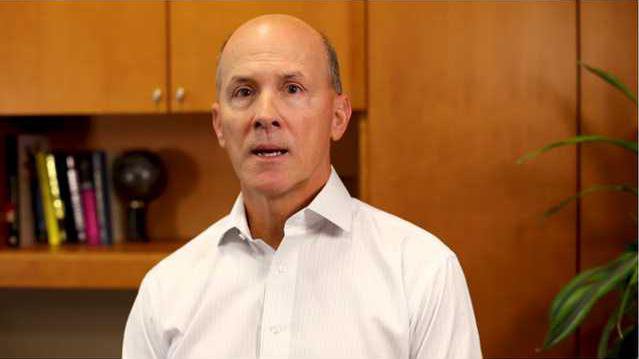Equifax, one of the major credit monitoring companies in the nation, said on Thursday that much of its data was exposed, leaving about 143 million Americans vulnerable to identity fraud.
The company said criminals stole Social Security numbers and sensitive information for nearly 143 million Americans, according to the Associated Press.
All of this information could be used to steal information and identity from Americans.
"On a scale of one to 10, this is a 10 in terms of potential identity theft," said Gartner security analyst Avivah Litan, according to the AP. "Credit bureaus keep so much data about us that affects almost everything we do."
Weve collected some helpful information about the hack to explain things a little easier. Heres a quick breakdown.
Was I hacked?: Here's how to find out: Equifax recommends you sign up for TrustedID Premier, which will tell you whether or not youve been hacked.
Head to www.equifaxsecurity2017.com and click on the Check Potential Impact tab to see if youve been hacked. Youll have to enter in the final six digits of your Social Security number.
Really?: Yes. But this decision drew criticism from experts, who said the company shouldnt be asking for more Social Security information to see if youve been hacked.
What if I dont use Equifax?: Equifax probably still has information on you, according to CNN Money. The service tracks financial history of U.S. consumers (even if you didnt know it), using information from banks, retailers and lenders.
So what was hacked?: Information exposed included Social Security numbers, home addresses, birth dates and even some drivers license numbers. According to Toms Guide, about 209,000 peoples credit card numbers were stolen. And 182,000 people had their personal identity information stolen, too.
Should I call Equifax?: TechCrunch writer Sarah Buhr called Equifax three times to learn more about the hack and the new TrustID service. She said she waited around until the call hung up on her all three times.
What should I do now?: Forbes has a good answer for that. First, you should find out if youve been affected, then begin monitoring your account for potential hacks. Forbes also recommends what to do in case you experience identity theft.
Is anyone upset about this?: The Chicago Tribune reported that users complained about the company for the hack. Consumers also arent happy that they have to give up more sensitive information just to see if theyve been hacked. Customer service representatives said theres not much they can do for consumers, either, the Tribune reported.
Did the company know?: As Bloomberg reported, three senior executives sold shares worth $1.8 million just days before the breach. The company said they hadnt been informed of the incident.
Hows the companys stock?: The company saw a 13.89 percent decrease in shares after the news broke of the jack, MarketWatch reported.
Is there a lawsuit yet?: Bloomberg reported that a class-action law suit seeks to represent the 143 million consumers affected, saying that the company didnt spend enough on protecting data.
The company said criminals stole Social Security numbers and sensitive information for nearly 143 million Americans, according to the Associated Press.
All of this information could be used to steal information and identity from Americans.
"On a scale of one to 10, this is a 10 in terms of potential identity theft," said Gartner security analyst Avivah Litan, according to the AP. "Credit bureaus keep so much data about us that affects almost everything we do."
Weve collected some helpful information about the hack to explain things a little easier. Heres a quick breakdown.
Was I hacked?: Here's how to find out: Equifax recommends you sign up for TrustedID Premier, which will tell you whether or not youve been hacked.
Head to www.equifaxsecurity2017.com and click on the Check Potential Impact tab to see if youve been hacked. Youll have to enter in the final six digits of your Social Security number.
Really?: Yes. But this decision drew criticism from experts, who said the company shouldnt be asking for more Social Security information to see if youve been hacked.
What if I dont use Equifax?: Equifax probably still has information on you, according to CNN Money. The service tracks financial history of U.S. consumers (even if you didnt know it), using information from banks, retailers and lenders.
So what was hacked?: Information exposed included Social Security numbers, home addresses, birth dates and even some drivers license numbers. According to Toms Guide, about 209,000 peoples credit card numbers were stolen. And 182,000 people had their personal identity information stolen, too.
Should I call Equifax?: TechCrunch writer Sarah Buhr called Equifax three times to learn more about the hack and the new TrustID service. She said she waited around until the call hung up on her all three times.
What should I do now?: Forbes has a good answer for that. First, you should find out if youve been affected, then begin monitoring your account for potential hacks. Forbes also recommends what to do in case you experience identity theft.
Is anyone upset about this?: The Chicago Tribune reported that users complained about the company for the hack. Consumers also arent happy that they have to give up more sensitive information just to see if theyve been hacked. Customer service representatives said theres not much they can do for consumers, either, the Tribune reported.
Did the company know?: As Bloomberg reported, three senior executives sold shares worth $1.8 million just days before the breach. The company said they hadnt been informed of the incident.
Hows the companys stock?: The company saw a 13.89 percent decrease in shares after the news broke of the jack, MarketWatch reported.
Is there a lawsuit yet?: Bloomberg reported that a class-action law suit seeks to represent the 143 million consumers affected, saying that the company didnt spend enough on protecting data.

